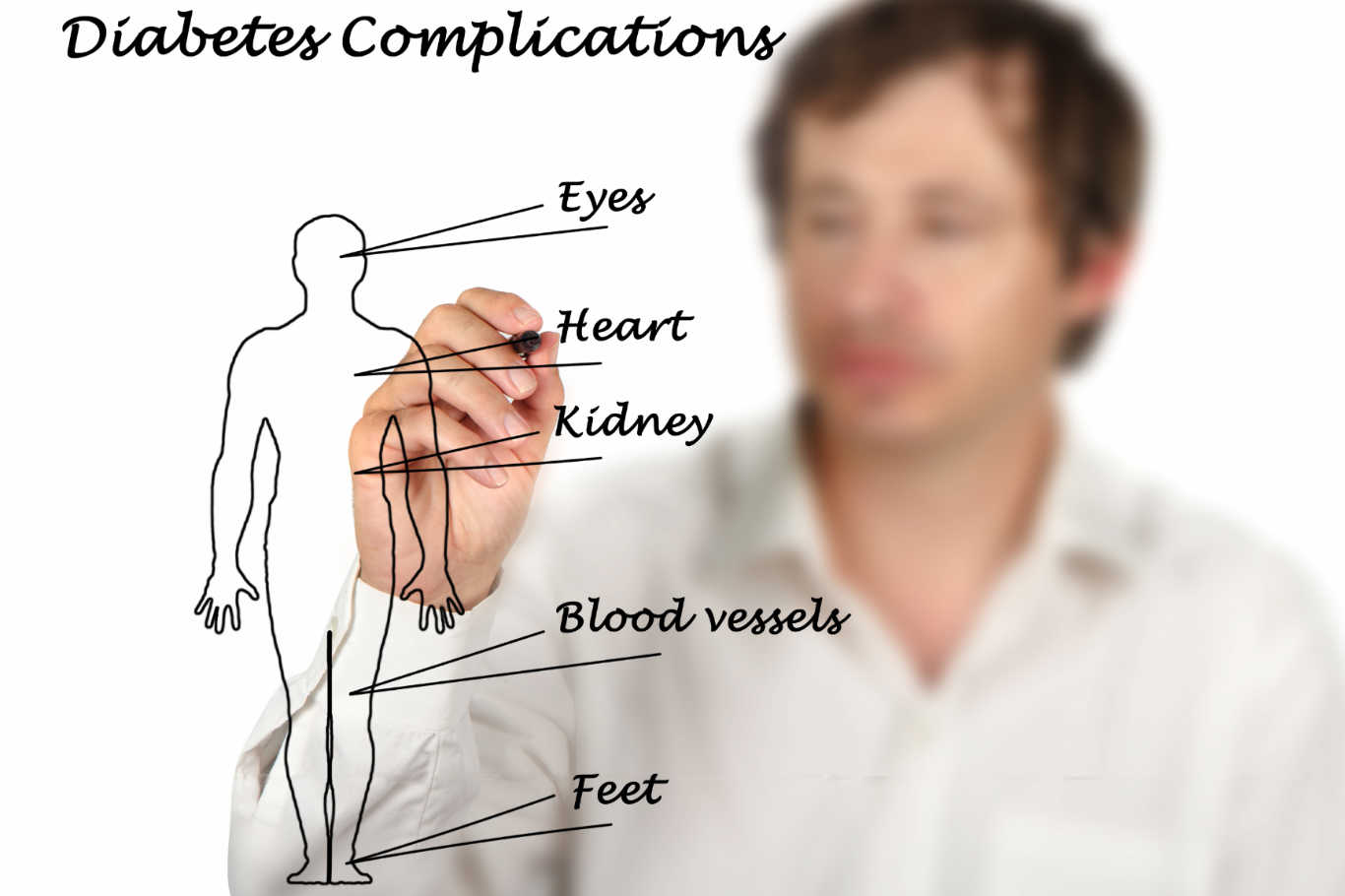Diabetes mellitus is a severe disorder in which the pancreas ceases to produce enough insulin required for burning the accumulated blood sugars. Abnormal blood sugar levels may impair vital oxygen-carrying blood vessels.
Although the specific factors causing Diabetes are either unknown or debatable, certain risk factors may lead to the condition. Following factors may signal an increased risk of Diabetes:
- Family History – A patient has an increased potential of being diabetic if either a parent or sibling has a history of Diabetes.
- Environmental Factors – Research reveals that exposure to viral illness often put a person on an increased risk of Diabetes.
- Autoantibodies or Damaging Immune System Cells – Family members of a diabetic patient may sometimes have Diabetes Autoantibodies. The presence of these cells puts you to a higher risk of developing Type 1 Diabetes. However, not everyone containing autoantibodies in the bloodstream gets diabetic.
- Body Weight – It has been observed that increased fatty tissues make your cells more resistant to insulin, thereby causing Diabetes.
- Inactivity – Reduced physical activity puts you at a higher risk of the disease. Physical activity keeps a check on your body weight, helps in burning glucose for energy, and increases the sensitivity of your cells towards insulin.
- Race – Research reveals that people of individual races are more prone to Diabetes. These include the black people, American Indians, Asian-Americans, and Hispanics.
- Age – You develop a higher risk of Diabetes as you age. The primary reasons may be loss of muscle mass, less exercise, and weight gain.
- Gestational Diabetes – Women who develop Gestational Diabetes during pregnancy are likely to develop pre-diabetes or Type 2 Diabetes at a later stage. The risk of Type 2 Diabetes increases if you gave birth to a child weighing over 9 pounds.
- Polycystic Ovary Syndrome – Women who have polycystic ovary syndrome often characterized by obesity, excess hair growth, and irregular menstrual period; are at higher risk of developing Type 2 Diabetes.
- Abnormal Cholesterol or Triglyceride Levels – Lower levels of good cholesterol or high-density lipoprotein (HDL) put you at a higher risk of Type 2 Diabetes. Same is true for people having high levels of triglycerides.
Further, the lack of oxygen in the blood may cause numerous other complications such as nerve damage, cardiovascular disease, hearing impairment, and more. Following are some possible complications linked with diabetes that may lead to deliberating progressive consequences:
Hypoglycemia
In this condition, the blood sugar levels decrease way beyond normal. Symptoms of Hypoglycemia include rapid heartbeat, sweating, anxiety, headache, confusion, numbness in extremities, loss of consciousness or seizures, hypersomnia or sleepiness. The condition is primarily observed in babies of a mother having gestational diabetes.
Babies often develop the condition soon after birth due to high insulin production. The blood sugar levels can be restored to normal by prompt feeding and an intravenous glucose solution.
The mothers having gestational diabetes may also develop complications such as preeclampsia characterized by excess protein content in the urine, swelling in legs and feet, and high blood pressure.
Ketoacidosis
When your body cannot derive energy from glucose, it burns fat, which produces ketones in the blood. The condition occurs when there is not enough insulin to breakdown glucose. Ketones build-up makes the blood more acidic, a condition often called ketoacidosis.
These high levels of ketones may cause hyperventilation, feeling of nausea, dehydration, swelling in the brain, and even coma, which can eventually be fatal. Symptoms of ketoacidosis include extreme thirst, frequent urination, fatigue, weakness, stomach pain, and a fruity smell in breath.
Cardiovascular disease
Diabetes can cause various cardiovascular problems such as coronary artery disease, chest pain (angina), risk of heart attack, narrowing of arteries called atherosclerosis, and risk of stroke. Diabetes makes a patient dramatically more prone to a stroke or heart disease.
Increased levels of blood sugar cause accumulation of cholesterol and formation of plaque leading to issues in blood circulation.
As a result, clots and blockages may appear in the blood vessels, thereby causing a stroke or heart attack. A patient seeking diabetes treatment can maintain heart health by regulating diet and following a regular exercise regimen.
Nerve damage or Neuropathy
Excess blood sugar levels can injure the internal walls of the capillaries, which are tiny blood vessels that nourish the nerves, thereby affecting the nervous system.
As a result, a patient may experience numbness, tingling, loss of sensation, burning, or pain which begins at the tips of the fingers or toes, gradually spreading upwards. This phase is often called peripheral neuritis.
Autonomic neuropathy controls body functions, including digestion, circulation, bladder control, and reproduction issues failure or impairment. If the condition is left untreated, the patient may eventually lose any sense of feeling or touch in the affected limb.
Further damage to the nerves which regulate digestion can cause severe problems like nausea, diarrhea, vomiting, or constipation. Sometimes neuropathy may cause erectile dysfunction in men.
Diabetic Retinopathy
Type 1 Diabetes causes damage to retinal blood vessels that can lead from partial vision impairment to complete loss of vision. The condition can affect the future and even the entire lifespan of an affected patient.
A cure for this deliberating condition is to seek early treatment and blood sugar tests. Furthermore, Diabetes can lead to severe other diseases related to vision, such as glaucoma and cataracts.
Diabetic Nephropathy
Kidneys contain numerous tiny clusters of blood vessels called glomeruli, which filter body fluids and eject any toxins and waste. Diabetes can eventually damage the delicate filtering system of the kidneys.
Increased blood sugar levels may cause irreversible damage to the kidneys leading to fatal kidney failure. Irreparable kidney damage may require a transplant or dialysis. Proper diabetic treatment can keep the organs in proper working condition for long.
Skin Conditions and Foot Damage
Diabetes can make a patient more susceptible to various skin problems such as fungal and bacterial infections. Diabetes can damage nerves in the ears, causing hearing impairment and foot, causing reduced blood flow leading to significant foot complications.
The patient may develop cuts and blisters, leading to more severe infections. Ultimately, the patient may require leg, foot, or toe amputation as an ultimate cure.
Alzheimer’s Disease
Poor control of blood sugar levels due to Type 2 Diabetes increases the risk of dementia or Alzheimer’s disease.
It has been observed that abnormal levels of blood sugar are directly related to the symptoms of dementia and memory control. The patients with improper blood sugar levels are at higher risk of developing the condition.
Hyperosmolar Hyperglycemic Nonketotic Syndrome (HHNS)
It is a severe condition commonly observed in older people suffering from Type 1 or Type 2 Diabetes. Some illness or infection usually causes it. Eventually, a patient of HHNS experiences increased blood sugar levels.
As a result, the body releases excess sugar through the urine. The patient experiences frequent urge to urinate and must intake more liquids. Sustained HHNS can lead to severe dehydration, seizures, coma, or eventual death of the patient.
High Blood Pressure or Hypertension
Every two in three people having Diabetes report to have high blood pressure. Improper blood sugar levels and high blood pressure can make the heart work harder.
This condition further increases the risk of other cardiovascular problems such as stroke or heart disease. Proper diagnosis, appropriate treatment, nutritious food intake, and healthy lifestyle changes can help a patient restore better health.
Gastroparesis
Patients suffering from Type 1 or Type 2 Diabetes may experience gastroparesis, a condition where the stomach takes longer than usual to empty its content.
High blood sugar levels cause damage to the vagus nerve that controls the movement of food through the digestive tract. As a result, the muscles of the intestine and stomach do not function properly, leading to slow or ceased movement of food.
Early signs and symptoms of the condition include heartburn, vomiting, nausea, weight loss, bloating, lack of appetite, stomach spasm, gastroesophageal reflux, and an early feeling of fullness while eating.





